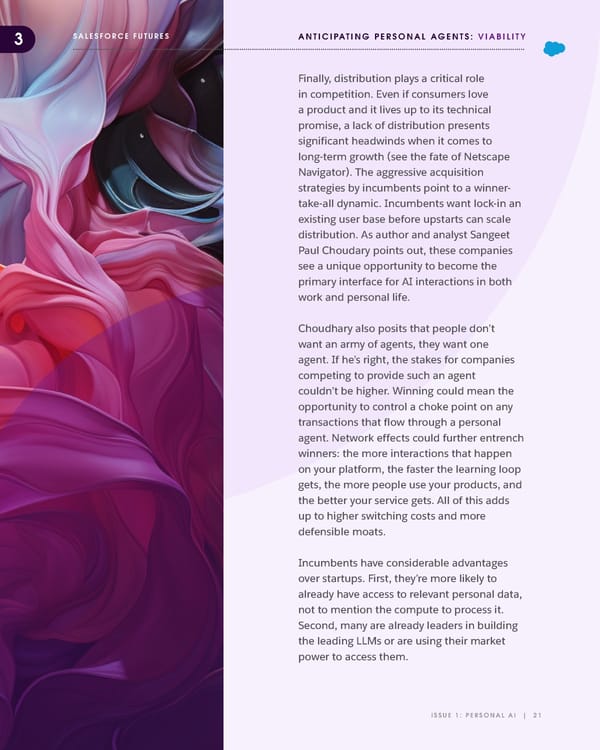3 SALESFORSALESFORCE FUTURESCE FUTURES ANTICIPATING PERSONAL AGENTS: VIABILITY Finally, distribution plays a critical role in competition. Even if consumers love a product and it lives up to its technical promise, a lack of distribution presents significant headwinds when it comes to long-term growth (see the fate of Netscape Navigator). The aggressive acquisition strategies by incumbents point to a winner- take-all dynamic. Incumbents want lock-in an existing user base before upstarts can scale distribution. As author and analyst Sangeet Paul Choudary points out, these companies see a unique opportunity to become the primary interface for AI interactions in both work and personal life. Choudhary also posits that people don’t want an army of agents, they want one agent. If he’s right, the stakes for companies competing to provide such an agent couldn’t be higher. Winning could mean the opportunity to control a choke point on any transactions that flow through a personal agent. Network effects could further entrench winners: the more interactions that happen on your platform, the faster the learning loop gets, the more people use your products, and the better your service gets. All of this adds up to higher switching costs and more defensible moats. Incumbents have considerable advantages over startups. First, they’re more likely to already have access to relevant personal data, not to mention the compute to process it. Second, many are already leaders in building the leading LLMs or are using their market power to access them. ISSUE 1: PERSONAL AI | 21
 Salesforce Futures Magazine Page 20 Page 22
Salesforce Futures Magazine Page 20 Page 22